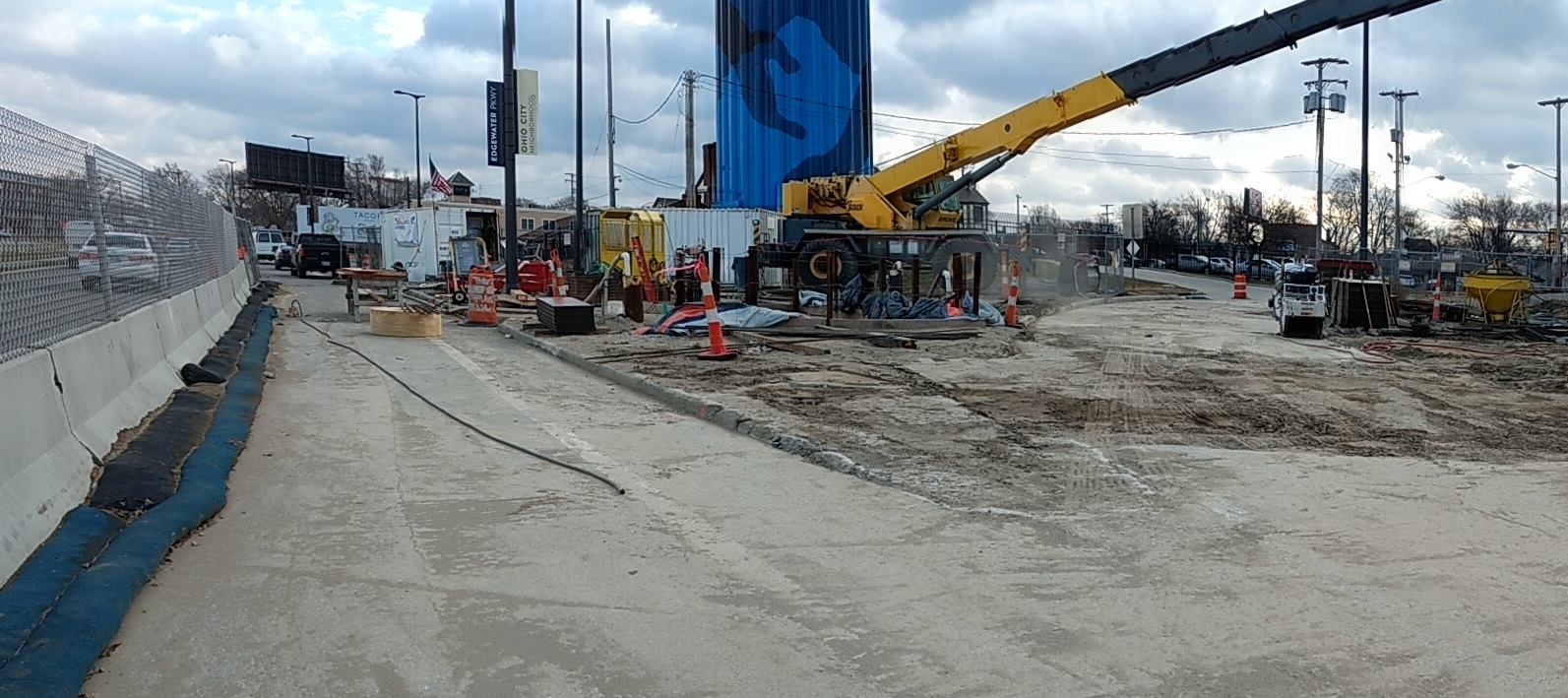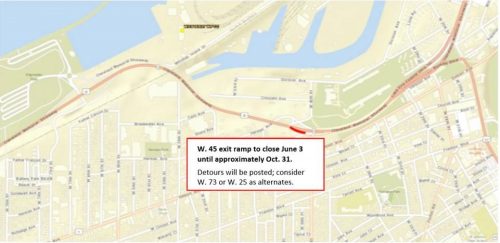TRAFFIC: Inbound West Shoreway W. 45th St. exit to remain closed to complete utility work
Posted by John Gonzalez
- 6009 Views
- May 31st, 2019
- in Miscellaneous
- No Comments
Drivers traveling eastbound on Cleveland Memorial Shoreway must use W. 73 or W. 25 exits beginning June 3
Cleveland (May 31, 2019) – Starting June 3 at 7 p.m., the W. 45th St. ramp for the West Shoreway will close for approximately five months. Drivers along the Cleveland Memorial Shoreway accessing Detroit Ave. and other neighboring streets should use either the W. 73rd St. or W. 25th St. exit ramps.
UPDATE November 12, 2019: The ramp closure is expected to last through November and into December to complete additional utility work. We will post updates as the become available.
UPDATE December 30, 2019: The ramp closure has been extended through the end of January due to the necessary completion of related utility work. We apologize for the inconvenience this has caused and will provide updates as they become available.
UPDATE January 15, 2019: The surface work is complete at the West 45th Street ramp and should be open for rush hour today. Detour signage should be removed by tomorrow. Thank you for your patience.
This ramp will temporarily close so the Northeast Ohio Regional Sewer District can continue construction of the Westerly Storage Tunnel. This project began in May 2018 and is the first tunnel on Cleveland’s west side. This $135 million project will capture 300 million gallons of combined sewage annually, preventing flows from entering the Cuyahoga River. The two-mile long tunnel runs beneath Tremont, Ohio City and Detroit-Shoreway neighborhoods.
This project includes construction near the intersection of Tillman Ave., W. 45th St. and the Cleveland Memorial Shoreway. When construction is complete, this site will allow maintenance crews to access the Westerly Storage Tunnel.
This project is part of Project Clean Lake, the Sewer District’s $3 billion, 25-year program to control the amount of raw sewage discharged into area waterways, including the Cuyahoga River and Lake Erie, during heavy rain. Project Clean Lake will reduce combined sewer overflow (CSO) from 4.5 billion gallons to 500 million gallons by 2036.


